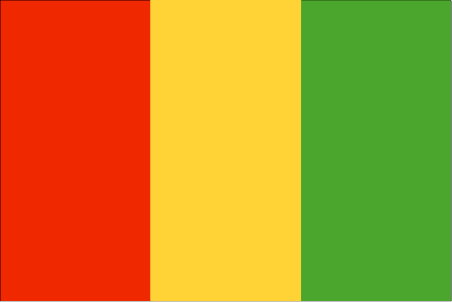First Obeservations
- Jeremy Starr

- Dec 4, 2016
- 3 min read
It used to take explorers several painstaking, scurvy infested, mutiny threatening weeks to travel from the Old World into the New. It took me and twenty nine other Americans to do the reverse in thirty hours.
Still sucked though…
When we finally landed in Conakry, Guinea, none of us were thinking about this new, challenging life we started, rather, we were thinking only of beds. We were exhausted.
After getting through customs and wading through chaos to find our luggage, we left the airport into the streets of Conakry. I was immediately struck by the smell. It seemed like I entered a smoker’s only lounge. Emissions test must not be a thing here; still better than the Jersey Turnpike though.
We proceeded to place most of our luggage in a truck in which we would be reunited with again a day later in Dubreka (just outside of Conakry and where I currently am now, writing this post). All thirty of us, and the remainder of our luggage, were then packed into a bus (a bus that holds twenty) that drove us to the Peace Corps Headquarters. The journey to Conakry may have been long, but it was boring and procedural. This twenty minute bus ride to headquarters was treacherous. We would alternate from paved roads, to dirt roads, to paved roads, to dirt roads. Motor bikes were weaving through the much maligned traffic, blasting their horns in reckless abandon. Entering a one-way entrance ramp merging into probably the main artery of the capital, we were met with vehicles driving straight towards us.
Along the roads there were many people. There were street vendors selling all sorts of products from manioc to bagged water to bed frames to artistic prints. I saw women balancing baskets and bags on top of their heads; they walked with steady determination; their carriage never faltered, not even a little. I saw groups of children and young adults dressed in tan uniforms; undoubtedly students. The periphery of the streets were vibrant and filled with personality
When we arrived at Headquarters it seemed that we entered a neighborhood reserved for foreign governments and NGOs. Right next to us was USAID, a gargantuan compound protected by twelve feet of brick. Headquarters was quaint and clean, a far cry from the conditions that lay beyond its gates. Apparently the compound used to be a resort in a past life. Murals covered the walls. Depictions of Guineans dancing, mothers caring for their children, and exotic wildlife were displayed in vibrant colors emulating a distinct African motif. That night we met other Peace Corps Trainees (PCVs) that have been here for over four months. We feasted on bags of shwarma, bombarded the PCV veterans with questions, and passed out in our mosquito net covered bunks.
I slept like a rock.
The following day was filled with procedure. We went through various orientations, received even more shots, and were given our daily anti-malarials.
Fun fact: my anti-malarials fight acne. We may be dirtier and sweater than you people back in the states, but we sure as hell have better skin than you.
It was about a two hour bus ride to Dubreka. It was fascinating to have an extended view of Conakry. It is a long city, nestled between the Atlantic and a series of enormous mountains.
The Peace Corps Compound in Dubreka is like being at a summer camp. We have had some classes and orientations, but most of our days have been filled with interesting conversations, basketball and soccer on the court, playing card games, listening to people play the acoustic guitar, and eating delicious Guinean food. My fellow volunteers have been awesome as well. We are all likeminded; we all want to make a world a better place. They have been pivotal in curing any home sicknesses
This has been the perfect way to begin our service. On Monday, the fourth, we will move in with our host families and begin our rigorous training. I have already been told that I will be required to construct a garden in my training community, and a smaller one at the home of my host family. Along with French, they have already started teaching us Susu and soon we’ll begin our education of Pular. Language training is without a doubt a challenging endeavor, especially since these local languages are taught entirely in French, a language I have yet to master, but it is a challenge I embrace. I love learning other languages because I treat it as a form of collecting. Some people like to collect fine art or fast cars; I prefer to collect expert knowledge of as many cultures as possible.
I’ll try to keep this blog updated as much as possible, but internet access has been extremely unreliable.
Until next time,
Au revoir!


Comments